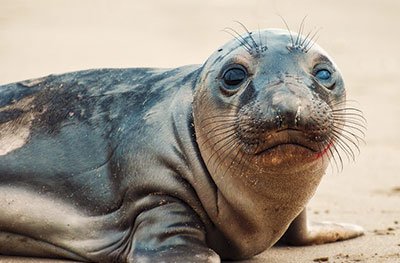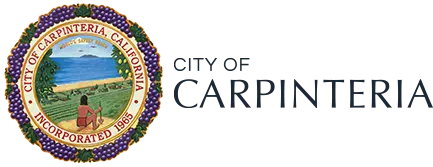Welcome to our resource page dedicated to marine mammal response and rescue efforts. On this page, you’ll find information on what to do if you come across a stranded or dead marine mammal and how you can help ensure their safety and well-being.
For more information on this subject, please visit the Channel Islands Marine and Wildlife Institute’s (CIMWI) website at: https://www.cimwi.org/.


What is CIMWI?

CIMWI is a 501(c)(3) non-profit organization dedicated to positively impacting conservation through marine mammal rescue, rehabilitation, research, and education to promote ocean and human health. CIMWI is the only organization authorized by NOAA’s National Marine Fisheries Service to respond to live and dead pinnipeds (seals and sea lions), live and dead sea turtles, and live cetaceans (whales, dolphins and porpoises), rehabilitate live pinnipeds, and triage live cetaceans and sea turtles in Santa Barbara and Ventura counties.
Who to Contact
If you have found an alive stranded marine mammal, please contact:
Channel Islands Marine and Wildlife Institute
Hotline Number: (805) 567 – 1505
Online Rescue Form: https://www.cimwi.org/online-rescue-form
Website: https://cimwi.org/
If you have found a dead marine mammal, please contact:
Channel Islands Marine and Wildlife Institute
Hotline Number: (805) 567 – 1505
Website: https://cimwi.org/
AND
City of Carpinteria
Phone: (805) 684 – 5405
Service Request: https://carpinteriaca.gov/service-request/
Reasons for Marine Mammal Strandings
Strandings can involve a single animal or multiple animals. Stranded marine mammals are animals that are:
- In need of apparent medical attention
- Dead on the beach, shore or in U.S. waters
- Alive and on the beach or shore but unable to return to the water
- Alive in U.S. waters where the water is so shallow it is unable to return to its natural habitat
Common reasons for strandings include injury, illness/disease, and malnutrition. Human interaction incidents can also cause marine mammals to strand.
What to Do if You Find a Stranded Marine Mammal
Do Not Touch!
-
- Do not touch, feed, harass, cover, pour water on, coax/drag/push into the water or out of the surf zone, allow dogs near or take selfies with the animal. These are wild animals and they may bite! Zoonotic diseases can be transmitted between stranded animals and pets as well as humans.
- Marine Mammals are federally protected under the Marine Mammal Protection Act. Violations can result in a civil penalty up to $11,000 as well as criminal penalties up to $100,000 and imprisonment of up to a year or both.
Observe Animal
- Observe the animal from a minimum of 50 feet (length of a school bus). Keep people and pets away from the stranded animal. Note the animal’s physical characteristics and condition.
- Not all animals on the beach need human intervention. It is normal for seals and sea lions to come out of the water (“haul out”) to rest, digest and sun themselves and mothers often leave their pups onshore while they are foraging at sea.
Determine Location
- Determine the exact location of the animal. Be as accurate as possible and note any landmarks.
- Tip: Most map applications on smartphones provide GPS coordinates
Call CIMWI’s Hotline
- Call the CIMWI Rescue Hotline at (805) 567-1505. Provide your name, phone number, specific information about the animal and its location.
- Or fill out an Online Rescue Form at https://www.cimwi.org/online-rescue-form



 © 2026 City of Carpinteria. All Rights Reserved.
© 2026 City of Carpinteria. All Rights Reserved.